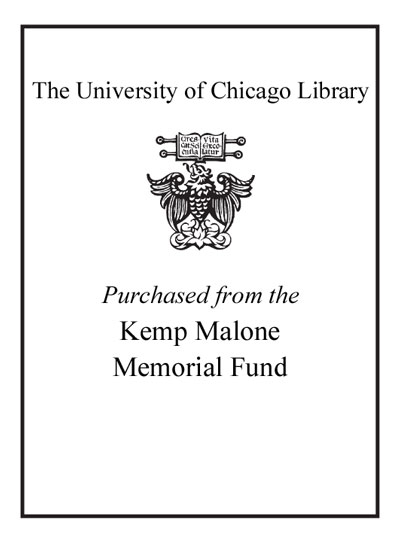Review by Choice Review
Organized around place rather chronologically, Turner's literary biography of Chaucer offers an encyclopedic survey of the world in which the poet circulated and developed his unique poetic perspective and voice. From the spaces of his early life in London and at court, to the sites of his European travels, to the more metaphorical places explored in his poetry, the Chaucer that emerges from this study is decidedly urban and cosmopolitan, well connected to a wide range of communities both local and international, and politically and bureaucratically savvy as he navigates the massive political and economic changes of the latter half of the 14th century. Turner (Jesus College, Univ. of Oxford, UK) reads Chaucer's poetry in light of these experiences, demonstrating how they contributed to the development of his distinctive poetic voice, which came to emphasize movement and dynamism, diversity and difference, multiplicity of perspectives and voicings, process, networks, surfaces, and thresholds. Chaucer's "spatial poetics" (p. 365) thus informs and is informed by the actual spaces he moved among over the course of his life. This accessible, impressively researched biography will be valuable to those interested in the poetry, politics, or social world of the late Middle Ages. Summing Up: Highly recommended. Lower-division undergraduates through faculty; general readers. --Shannon Gayk, Indiana University
Copyright American Library Association, used with permission.
Review by Kirkus Book Review
A thorough look at the rich "imaginative development" of the author of The Canterbury Tales.Turner (English/Jesus Coll., Univ. of Oxford) concentrates on the cultural and intellectual currents in Geoffrey Chaucer's life (c. 1342-1400), declaring that the "emotional life" of this medieval English author is "beyond the biographer's reach." As she writes, "I've chosen to tell the story of his life and his poetry through spaces and places, rather than through strict chronology." The author manages to glean a great deal about her subject's life: his childhood in Vintry Ward, London, as the son of a prosperous wine merchant; his witness to the ravages of the Black Plague; his lifelong political attachment to the reigning English sovereign, Edward III, and his royal household. As a young teen, Chaucer's employment with Elizabeth de Burgh, the countess of Ulster, allowed him to absorb all the trappings of wealth while his subsequent travels as ambassador and accountant to Edward and John of Gaunt to France and Italy exposed him to the wildly popular medieval love tales of the time, such as "Roman de la Rose." As he pursued his own work, Chaucer wrote in English; Turner partly explains his choosing to write in the vernacular as a kind of international trend of the time. Later, his exploration of innovative rhythms led to the invention of the iambic pentameter. The Canterbury Tales, written during his last years living and working at the counting house in the commercial heart of London, reveals the enormous diversity of personages he encountered; this is especially evident in the novel nuances in his portrayals of women. Turner also diligently explores the inspirations behind Chaucer's recurrent metaphors, demonstrating how he "repeatedly emphasized in his poetry the need to go to the streets and listen to all kinds of people." Though perhaps too dense for general readers, the book is well-suited to scholars and students of medieval literature.A meticulously researched, well-styled academic study showing Chaucer as the "consummate networker." Copyright Kirkus Reviews, used with permission.
Copyright (c) Kirkus Reviews, used with permission.
Review by Choice Review
Review by Kirkus Book Review

